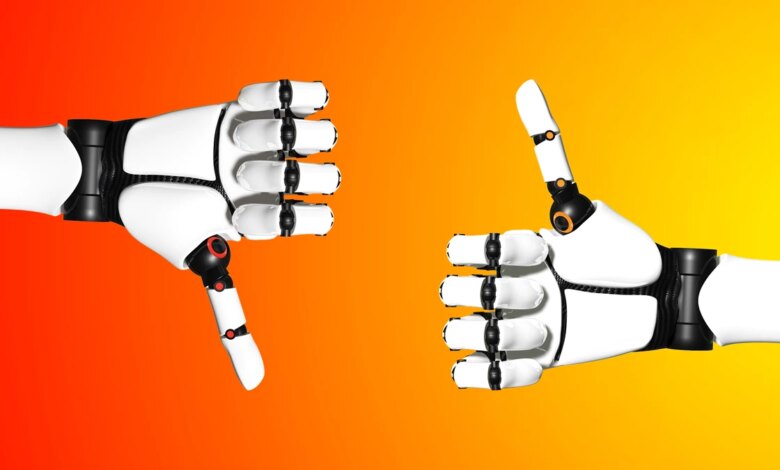What Silicon Valley’s New Ethical Thinking Gets Right—and Wrong

Former cryptocurrency trade executive Ryan Salame was sentenced last week for federal financial crimes he committed while working for FTX. The company’s billionaire founder, Sam Bankman-Fried, was sentenced months ago for engaging in “one of the largest financial frauds in history.” This case is making headlines and sparking long-term conversations in the burgeoning field of tech ethics.
Bankman-Fried’s name and story are inextricably connected to the new ethical thinking of Silicon Valley, which is increasingly influenced by “longtermism”—the idea that positively influencing the future is the key moral priority of our time—and “effective altruism,” which dictates that if you want to do good, you should do it as effectively as possible.
The prominent thought leaders of these principles are William MacAskill (What We Owe the Future, 2022) and Roman Krznaric (The Good Ancestor, 2020). MacAskill taught Bankman-Fried during his time at Oxford, advising him that his acquired talents would be most effectively maximized in business and philanthropy. And so, citing longtermism and effective altruism as reasons for founding FTX, Bankman-Fried’s company earned him trust and billions of dollars—some of which went to charitable causes while much eventually ended up in his own pocket.
Not only did Bankman-Fried’s focus on long-term moral goals eventually eclipse the ethics of his immediate personal actions, but it appears thought leaders like MacAskill reportedly ignored repeated warnings about Bankman-Fried. Why? As Charlotte Alter wrote for Time magazine, “For a group of philosophers who had spent their lives contemplating moral tradeoffs and weighing existential risks, the warnings about Bankman-Fried may have presented a choice between embracing a big donor with questionable ethics or foregoing millions of dollars they believed could boost their nascent movement to help save the future of humanity.”
It seems one of the weaknesses of this new ethical thinking is an age-old “ends justify the means” mentality. Having tunnel vision about future big-picture ethical goals can often lend itself to unethical methods in the short term. It’s for this and other reasons that some are sounding the alarm about this emerging approach to ethics—including intellectual historian Émile P. Torres, for whom effective altruism and longtermism are “toxic ideologies” with “worrying dystopian tendencies.” Perhaps, he proposes, “Silicon Valley’s favorite ideas for changing the world for the better actually threaten to make it much, much worse.”
Even still, effective altruism and longtermism groups are sprouting up in universities across the country and seem to especially resonate with young college students who are eager to champion charitable causes and make a difference in the world. As Benjamin Vincent observed in a previous piece for CT, the “apocalyptic hope” of metamodernism is quickly replacing the cynical stance of postmodernism as the new cultural mood of the next generation of youth.
Longtermism and effective altruism work well together, as they are both led by a pragmatic utilitarianism—in which ethical decisions are calculated based on providing future happiness for as many people as possible. For example, donating money to prevent epidemics makes a lot of sense since it has the potential to save a high number of human lives. Likewise, combating climate change and avoiding nuclear war are effective philanthropic outlets.
These principles are becoming increasingly popular in business and among tech industry leaders, including Elon Musk, who called MacAskill’s work “a close match” for his philosophy, which includes outspoken pronatalism. In 2021, Musk offered to sell at least $6 billion worth of Tesla stock if the United Nations’ World Food Programme (WFP) could give a detailed account of how that money would be spent on helping hungry people on the planet. But instead of providing specific data, WFP’s executive director Cindy McCain initially responded with a relational and ideological appeal.
It was like two ships sailing past each other in the night: Musk, an engineer, who wanted hard data to solve a tangible problem, and public officials who wanted to talk about the ideals and motivations behind the problem. As many people on X urged him to donate the $6 billion anyway, Musk did donate $5.7 billion of his Tesla shares to an unknown charity in the following weeks.
This new ethical thinking ultimately centers on the pursuit of happiness and well-being, which invokes a moral responsibility to actively engage in a collective struggle against environmental disasters, disease, poverty, war, and oppression. Given the comprehensive calculations needed for such large-scale humanitarian projects, it is not surprising that this approach seems to be most popular among those with a background in the hard sciences, including engineering, technology, and other fields that focus on efficiently utilizing time and money.
For Christians, there is much to applaud and to criticize. On the one hand, tech leaders are seeing future risks and are willing to employ their own resources to help mitigate them. On the other hand, their motivations and solutions are informed by a techno-optimism that often reduces the world’s problems to technical issues requiring technical solutions. In doing so, they end up neglecting the underlying causes behind some of these global concerns—which can’t be fixed by more money or better technology but only by a change of the human heart.
Take, for instance, Bill Gates’s recent book, How to Avoid a Climate Disaster (2021). This software engineer sees climate change as a physical problem and offers practical solutions to fix it: Let’s fund research and development for innovation on cleaner and more efficient technology, and let industry and markets work together with governments to implement this. He focuses on upscaling innovation early to ensure such technology will become economically viable.
But what he fails to mention are the many unseen and systemic drivers behind climate change, including unbridled consumerism in the West, the social trend of “keeping up with the Joneses,” the pension funds and investments in fossil industries aimed at keeping shareholders happy, and national governments that continue to subsidize fossil fuels to please their populations.
Or consider how tech leaders approach the possible threats that generative artificial intelligence (AI) poses to humanity. At The AI Summit London last year, tech leaders drafted an open letter asking to pause AI development due to its long-term risks. But what was never mentioned were the existing dangers of internet algorithms making us addicted to our screens and creating an anxious generation of youth. The future risk of AI was limited to its computational force, not its potential in the hands of social media giants eager to keep us hooked on their platforms.
Still, there are many elements for believers to admire in this way of thinking. Christian ethics also takes the well-being of others into account, sometimes even at the expense of our own happiness. And our worldview should also be future-focused: God himself promised the Israelites that their children and children’s children would be blessed by their obedience to his commands—or cursed by their acts of unrighteousness (Ex. 34:7).
These principles also correspond with the biblical idea that God calls us to be good stewards. When Jesus returns to renew creation, we will be judged according to our “works” (Rev. 20:12), including our treatment of people and the earth. In fact, this outlook is a helpful corrective to the tendency of some believers to focus on the urgent task of evangelism (the Great Commission ) at theexpense of God’s first command to humanity: that we “be fruitful and increase in number,” “fill the earth and subdue it,” and “work it and take care of it” (Gen. 1:28; 2:15).
Longtermism and effective altruism both bring up great questions for Christians to discuss and to seek scripturally sound answers, such as how our eschatological views impact the calculus of Christian ethics. On a practical level, these can also provide avenues for helpful dialogue with our fellow citizens about which policies best serve the well-being of humanity. In this way, effective altruists and longtermists can help Christians reflect on what we should stand for and what we are willing to do to better our world—both now and in the future.
We can also admire the lengths some go to in advancing this cause. MacAskill promotes giving away 10 percent of income to charitable causes, volunteering one’s services, and choosing jobs that will make a difference in the world. Likewise, Rutger Bregman finances a school for “moral ambition” to encourage young professionals to not simply choose a high paying job and give money to charity but to make a morally grounded difference in a role that best fits their talent.
But, as with anything, there can be a dark side to this ideology—especially when we trace it back to its source. Peter Singer, one of the most popular and influential ethicists of this century, was an early founder of effective altruism. He’s also an atheist who has made strange ethical arguments in the past, including placing animal rights on equal (or higher) footing as human rights. And although most wouldn’t subscribe to Singer’s more fringe beliefs, we must remember that the root of this new ethical thinking is grounded in a deeper philosophy of life—a largely secular worldview that lends itself well to a more sophisticated form of hedonism, where the ultimate purpose of human life is the pursuit of happiness.
Effective altruism, which seeks to focus all our resources on maximizing or optimizing our positive impact—on making as many people happy as possible in the far future—can also be at odds with the ministry principles of Jesus. According to this standard, leaving 99 people to save the 1 makes no sense. And neither does wasting expensive perfume at the feet of our Savior. Did the Samaritan pause to consider whether caring for his beat-up neighbor by the roadside was the most effective use of his time and money?
Christian philosophers have long criticized the tendency of post-industrial societies to perceive life’s problems, and their solutions, as merely technical. In The Technological Society (1964), Jacques Ellul warns that when we rely too heavily on technology’s capacity to fulfill humanity’s future happiness, “ideas and theories no longer dominate, but rather the power of production.”
That is not to say that productivity is unimportant. Christians can and should participate in the technical calculation of global problems and find effective, sustainable, long-term solutions. And we must also avoid over-spiritualizing by reducing everything to the spiritual dimension, where soul-saving becomes our only goal in this life. In short, whenever we reduce ethics to any one dimension—whether technical or spiritual—we can easily lose sight of all the others.
Dutch theologian Abraham Kuyper famously proclaimed, “There is not a square inch in the whole domain of our human existence over which Christ, who is Sovereign over all, does not cry: ‘Mine!’” He taught that all life is under common grace, and that Christians should participate in every field of inquiry. This premise was furthered by his intellectual heir, Herman Dooyeweerd, who developed a holistically Christian view of life in service to our Creator—believing Christian scholars should boldly plant “the banner of Christ’s kingship” in every field of study.
Longtermism and effective altruism can be shared moral grounds for us to appeal to our fellow citizens to secure the future well-being of our children, the earth, and society. But an ethical system that is solely defined by this outlook can lack a more holistic vision of life. We must seek a well-rounded wisdom that extends beyond the merely logistical and technical aspects of complex problems, such as global hunger, and that weighs matters closer to the heart of such issues.
As believers, we are accountable for all our actions (2 Cor. 5:10) and we must not weary of doing good to all (Gal. 6:9–10). Still, as fallen humans in a fallen world, we possess a certain humility in what we believe we can achieve this side of heaven—along with an innate dependence on our Creator. For although we may fail in our efforts, we are upheld by the grace of God. It is for this reason that Christ’s yoke is easy, and his burden is light (Matt. 11:30).
Maaike E. Harmsen is a Reformed theologian, preacher, writer, and part-time city councilor in the Netherlands.




